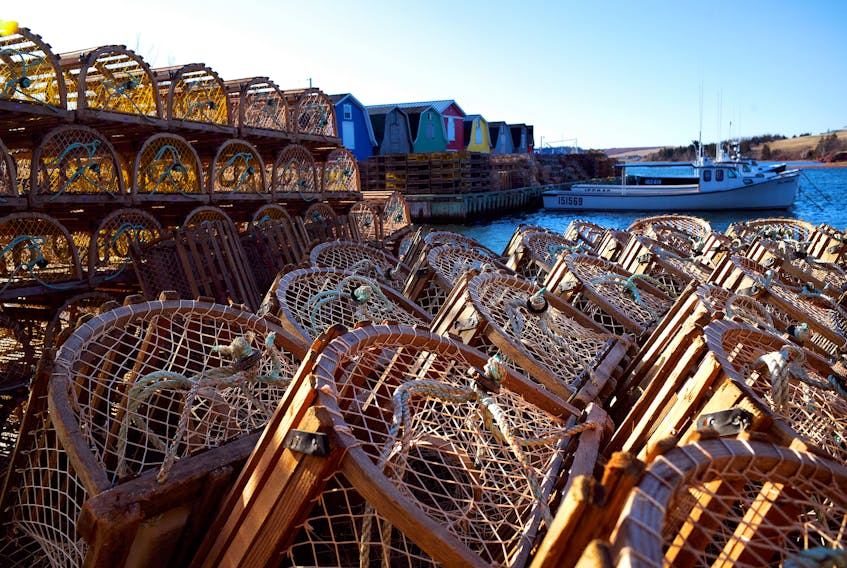The fishing industry in Atlantic Canada is struggling.
Season openings have been delayed by fears about the coronavirus spreading in small communities, fishing vessels and processing plants.
Markets and prices have plummeted as retail, restaurant and export markets have been caught up in COVID-19 pandemic shutdowns.
Ottawa stepped up for harvesters with nearly half a billion dollars in grants and benefits, easing the burden for those out on the water, but by many accounts, those in the processing sector are still worried.

Tough to process
Cedric Robicheau, owner of several fish plants in southwest Nova Scotia and P.E.I., said the pandemic has caused him to lose about 90 per cent of finished-product clients and about 65 per cent of customers for live products.
“We had to scramble and go to different markets and everybody did the same thing, so it is a challenge,” Robicheau said. “We need to fill up our facilities that hold a million and a half pounds for the summer market, and we're feeling this is a big risk because we don't know if we're going to have a second wave that's going to hit us, so are we going to gamble to put a million and a half pounds away?”
He also said the coronavirus is compounding a longstanding problem with finding seasonal workers. In the best of times finding enough manpower can be challenging, and now Robicheau said he’s been struggling to compete with government benefits.

He said he’s been able to secure some buyers for his product and needs his plants operating to get the product to market.
“This factory goes 24 hours a day and it's a normal time of year in April, May and June, you hire an extra 50 people to come in,” he said. “And we called for those employees to come back and they said, ‘No we don't want to go work because of the virus. … We're making 500 a week from the government,’” he said.
To deal with the shortage, Robicheau has applied for temporary foreign workers to come from Korea and Mexico to fill the positions, and has invested in housing so they can quarantine for several weeks after arrival per public health guidelines.
Other industries in Nova Scotia have had similar problems finding workers, such as the agricultural sector, where employers had to rely on more temporary foreign workers this year.
Short season blues
Keith Sullivan, president of the Fish, Food and Allied Workers (FFAW), the union that represents fisheries workers in Newfoundland and Labrador, said lack of workers has been less of a problem in Newfoundland and Labrador, and, in fact, he’s concerned a shorter season will leave some workers hurting financially.

“Obviously COVID has impacted the market and we're seeing condensed fishing seasons and there may be some places where you have significantly decreased fish landings, which will impact fish processing,” said Sullivan.
Many processing plants also dealt with closures and they made necessary renovations to ensure their plants were COVID-19-safe — costs of equipment and supplies for their plants were covered through federal funding.
“There are still a lot of people with compromised immune systems and things of that nature who just can't go to work in this environment, so some people who normally would be working are not working,” Sullivan said.
“Or you go from 26 weeks of work in a seasonal industry. If you get that cut in half, the opportunity to be able to live through the year is incredibly stressful on top of the health concerns,” Sullivan said.
“We have concerns about how they will be considered now and throughout the year because the funding for CERB is only for 16 weeks.”
Sullivan said he hopes the federal government will offer an option for plant workers that allows them access to employment insurance benefits based on hours from previous years.
“Paying people more, valuing this work more, would certainly go a long way to attract people to these industries.” — Keith Sullivan
The union has been calling on more processors to take the lead and pump up pay for their workers due to the risks involved in coming to work during the pandemic, as other companies such as major grocery retailers and some fish processors have done.
“Give consideration to people here working through this. Most of the big businesses are eligible for a wage subsidy which covers up to 75 per cent of these workers’ wages,” he said.
“Paying people more, valuing this work more, would certainly go a long way to attract people to these industries.”









